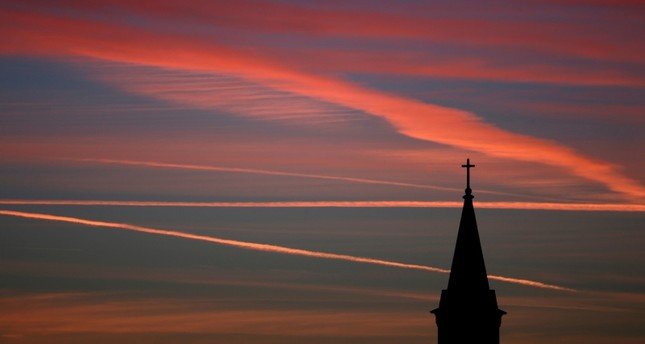|
Hawzah News Agency - The percentage of U.S. adults who belong to a church or other religious institution has plunged by 20 percentage points over the past two decades, hitting a low of 50% last year, according to a new Gallup poll. Among major demographic groups, the biggest drops were recorded among Democrats and Hispanics. Gallup said church membership was 70% in 1999 — and close to or higher than that figure for most of the 20th century. Since 1999, the figure has fallen steadily, while the percentage of U.S. adults with no religious affiliation has jumped from 8% to 19%. Among Americans identifying with a particular religion, there was a sharp drop in church membership among Catholics — dropping from 76% to 63% over the past two decades as the church was buffeted by clergy sex-abuse scandals. Membership among Protestants dropped from 73% to 67% percent over the same period. Among Hispanic Americans, church membership dropped from 68% to 45% since 2000, a much bigger decline than for non-Hispanic white and black Americans. There was a big discrepancy over that 20-year period in regard to political affiliation: Church membership among Democrats fell from 71% to 48%, compared to a more modest drop from 77% to 69% among Republicans. David Campbell, a University of Notre Dame political science professor who studies religion's role in U.S. civic life, attributed the partisan divide to "the allergic reaction many Americans have to the mixture of religion and conservative politics." "Increasingly, Americans associate religion with the Republican Party — and if they are not Republicans themselves, they turn away from religion," he said. Mark Chaves, a professor of sociology, religion and divinity at Duke University, said that as recently as the 1970s, it was difficult to predict someone's political party by the regularity with which they went to church. "Now it's one of the best predictors," he said. "The correlation between religiosity and being Republican has increased over the years." The overall decline in church membership is driven by cultural and generational factors, said Nancy Ammerman, a professor of the sociology of religion at Boston University. "Culturally, we are seeing significant erosion in the trust people have for institutions in general and churches in particular," she said. "We are also seeing a generational shift as the 'joiner' older generation dies off and a generation of non-joiners comes on the scene."
End. |
News ID: 357393
20 April 2019 - 09:57

Among Americans identifying with a particular religion, there was a sharp drop in church membership among Catholics
